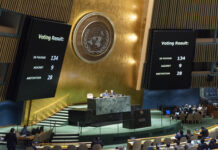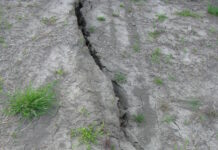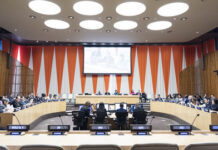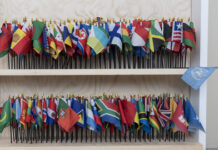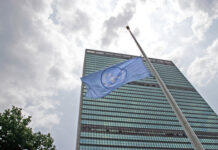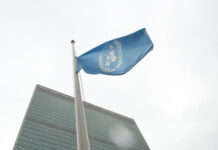This is the News in Brief from the United Nations.
Aid still not getting through to Gaza, says UN aid agency
Israeli military manoeuvres and shelling continued in and around eastern Rafah in southern Gaza on Wednesday as UN humanitarians stressed that “no fuel or aid” was reaching the enclave.
“We’re not receiving any aid, the crossing area has ongoing military operations and is an active war zone,” said Scott Anderson, from the UN agency for Palestinian refugees, UNRWA.
In a short statement on social media Mr. Anderson reported hearing continued bombardments in Rafah throughout the day.
“No fuel or aid has entered into the Gaza Strip and this is disastrous for the humanitarian response,” added the UNRWA Director in Gaza.
The development comes amid deepening international concerns including from the UN Secretary-General about a full-scale Israeli military operation in Rafah, fuelled by the closure of Kerem Shalom following a deadly rocket attack claimed by Hamas last weekend, and the seizure of Rafah crossing on Tuesday by Israeli forces, dashing ceasefire hopes.
Unprecedented flooding displaces hundreds of thousands across east Africa
“Unprecedented and devastating” flooding in east Africa has triggered widespread displacement with hundreds of thousands forced from their homes in Burundi, Kenya, Rwanda, Somalia, Ethiopia and Tanzania.
In an alert, the International Organization for Migration (IOM) said on Wednesday that torrential rains have unleashed catastrophic flooding and mudslides while also severely damaging roads, bridges and dams.
More than 637,000 people have been affected by weeks of deluges including 234,000 displaced in just the last five days.
There is no official figure for the number of dead.
Displacements keep rising, the UN agency said, noting that the flooding emergency was one of the “harsh realities” of climate change, which has claimed lives and uprooted entire communities.
Africa is highly vulnerable to climate change despite contributing only about four per cent to global greenhouse gas emissions.
The East and Horn of Africa has particularly been impacted by alternating cycles of drought and intense precipitation over the last decade, IOM maintained.
No respite in sight for Brazil suffering flood emergency: WMO
More weather news now, and record rainfall has caused never-before seen flooding in southern Brazil, with a growing number of casualties and massive damage to infrastructure and services.
UN climate specialists have warned that there’s “no immediate respite in sight” for the state of Rio Grande do Sul.
According to the World Meterological Organization, WMO, the El Niño climate phenomenon is responsible for the extraordinarily high amount of rain which has killed 78 people and displaced well over 100,000.
More effective global coordination is needed to respond to the dangers posed by El Niño, WMO insisted, along with better early warning measures, to protect vulnerable communities.
Highlighting that message, the UN agency noted that the huge extent of the flooding which swamped the airport in the state capital Porto Alegre and paralysed industry.
Transport links and energy and water supplies were also cut and 110 hospitals were affected by rains which have been persistent and heavy since 27 April, WMO said.
Shanaé Harte, UN News.
Source of original article: United Nations (news.un.org). Photo credit: UN. The content of this article does not necessarily reflect the views or opinion of Global Diaspora News (www.globaldiasporanews.com).
To submit your press release: (https://www.globaldiasporanews.com/pr).
To advertise on Global Diaspora News: (www.globaldiasporanews.com/ads).
Sign up to Global Diaspora News newsletter (https://www.globaldiasporanews.com/newsletter/) to start receiving updates and opportunities directly in your email inbox for free.




